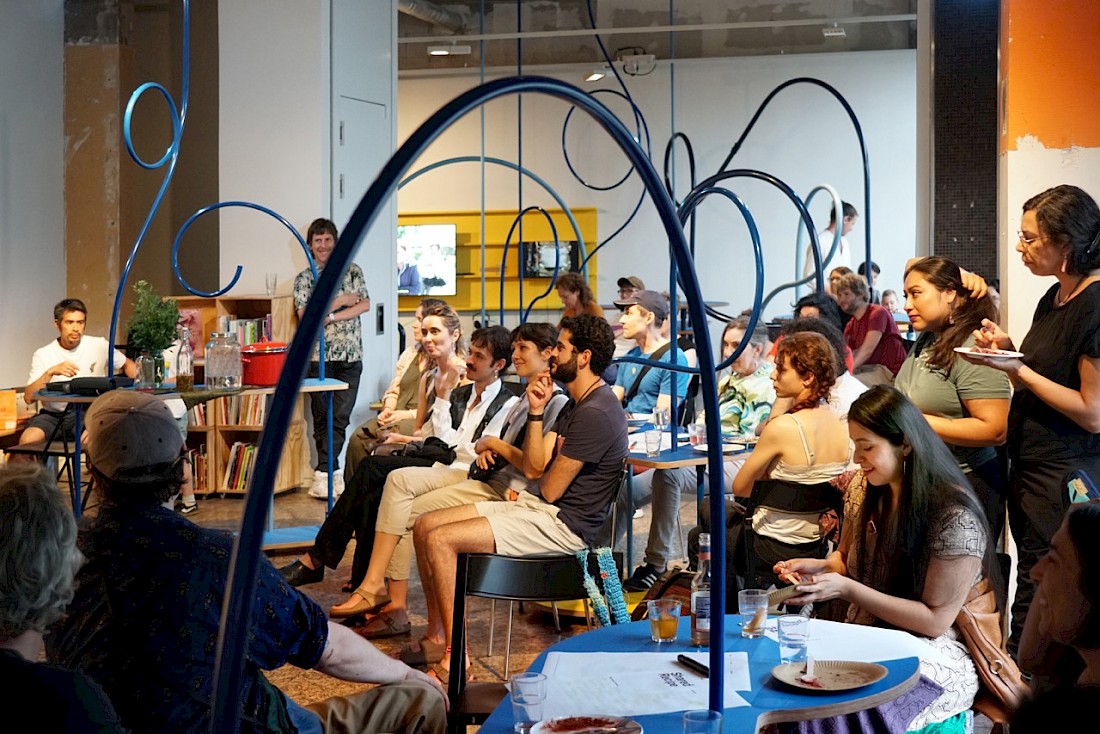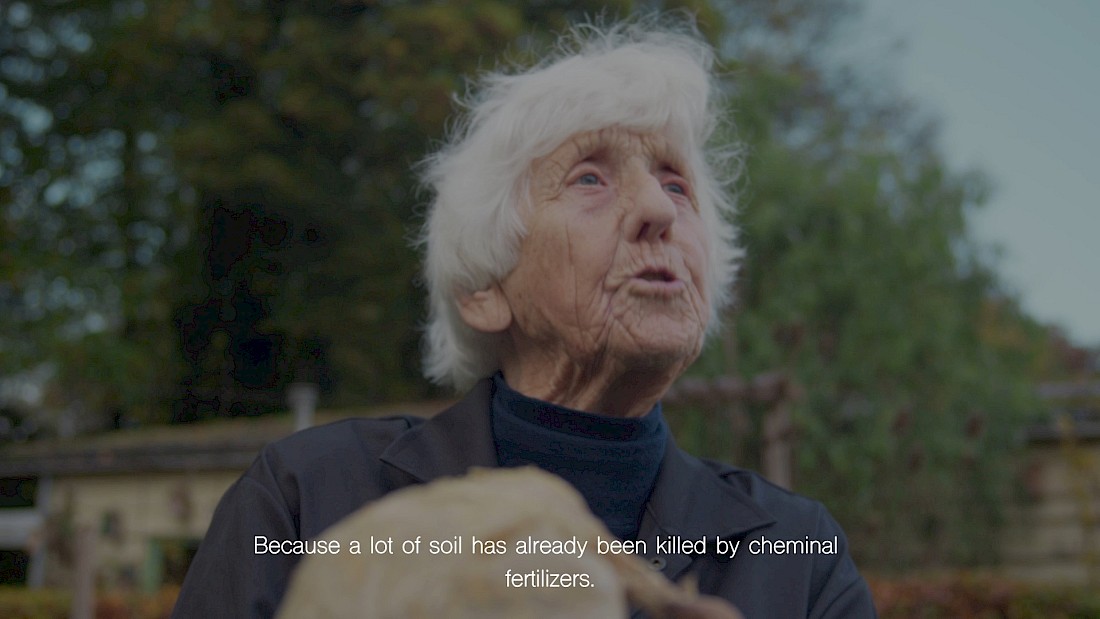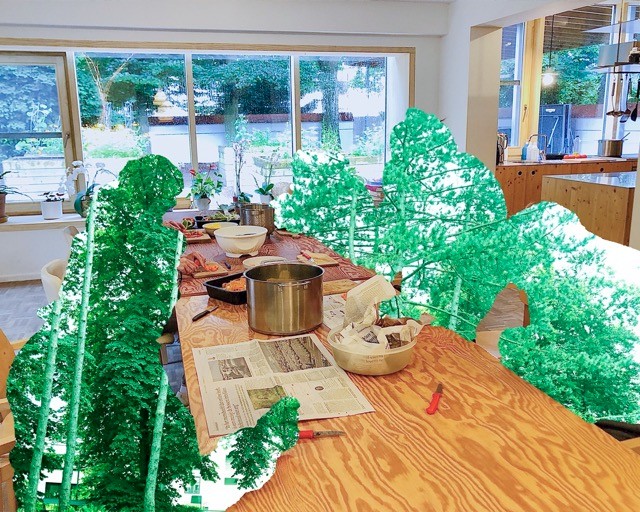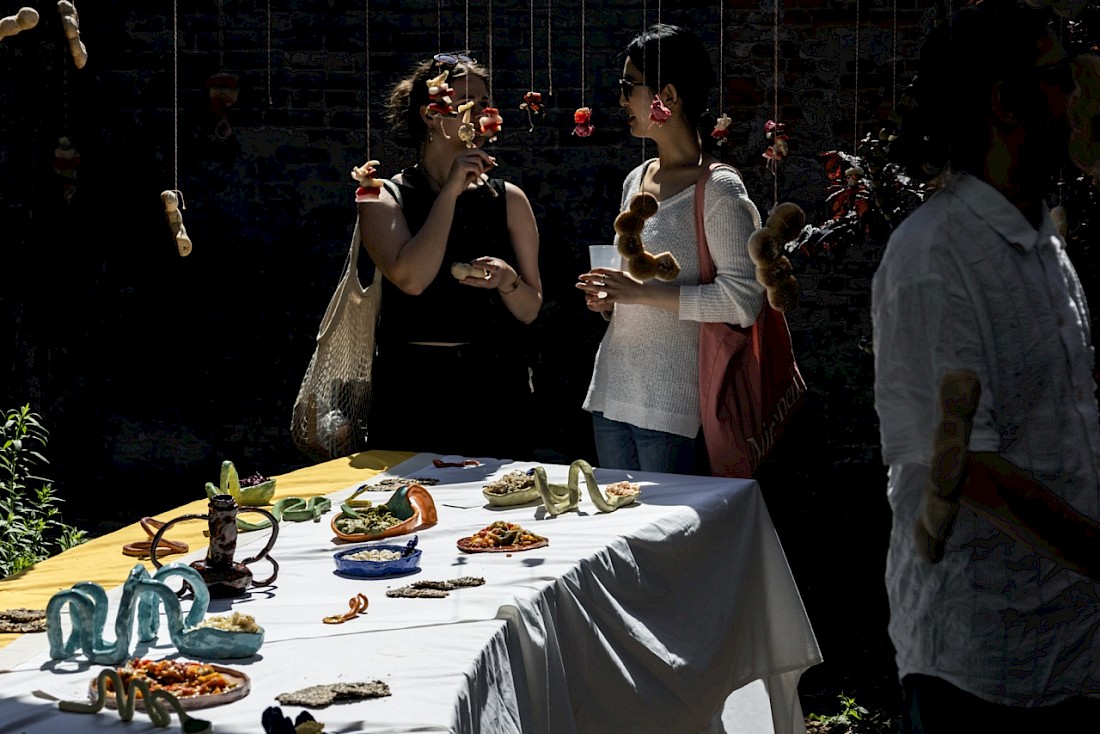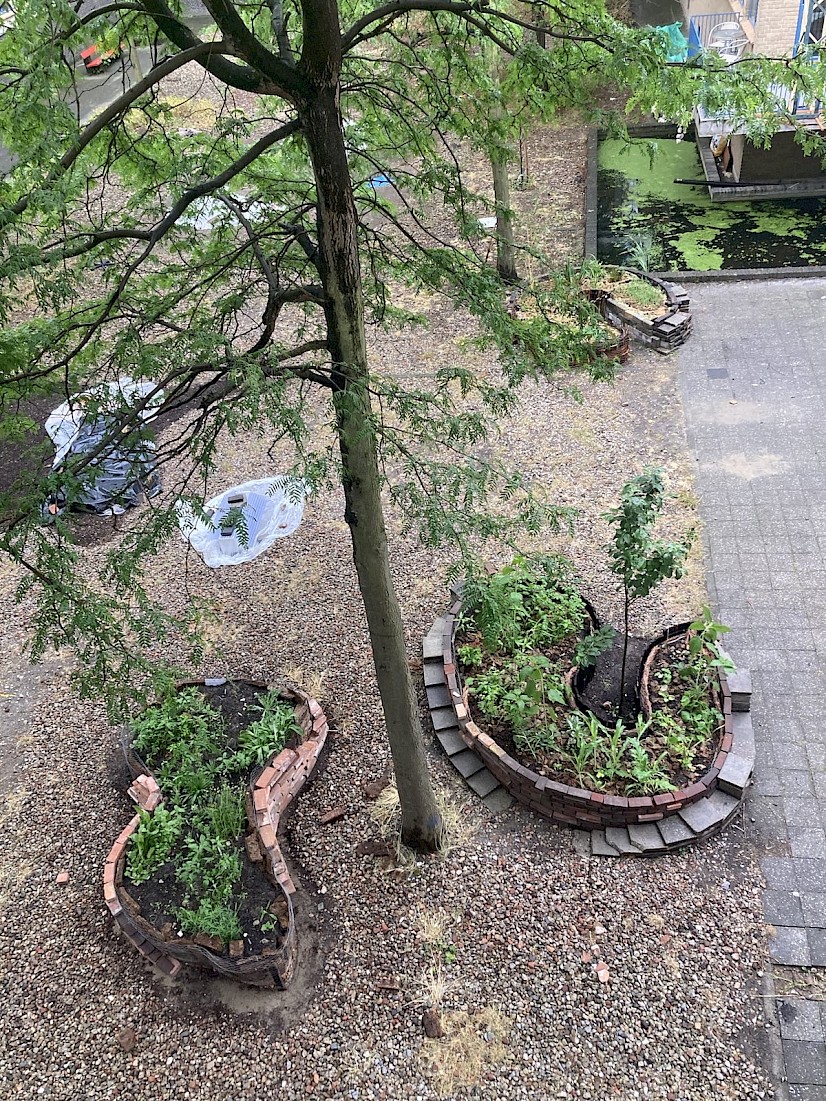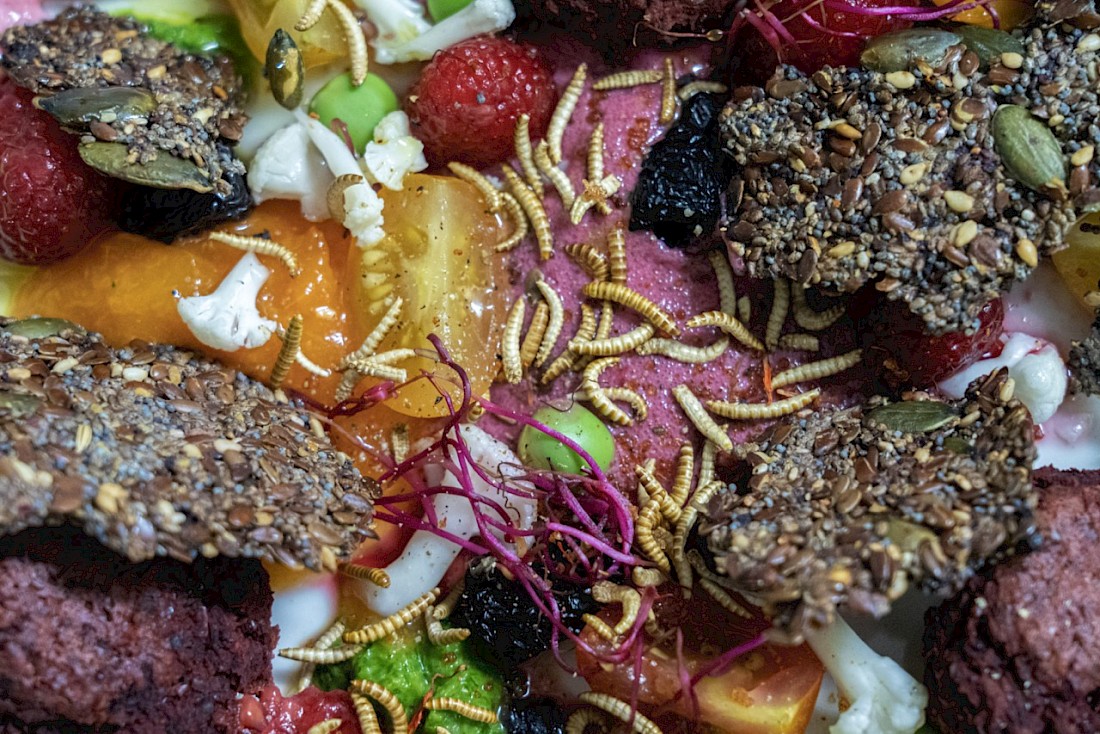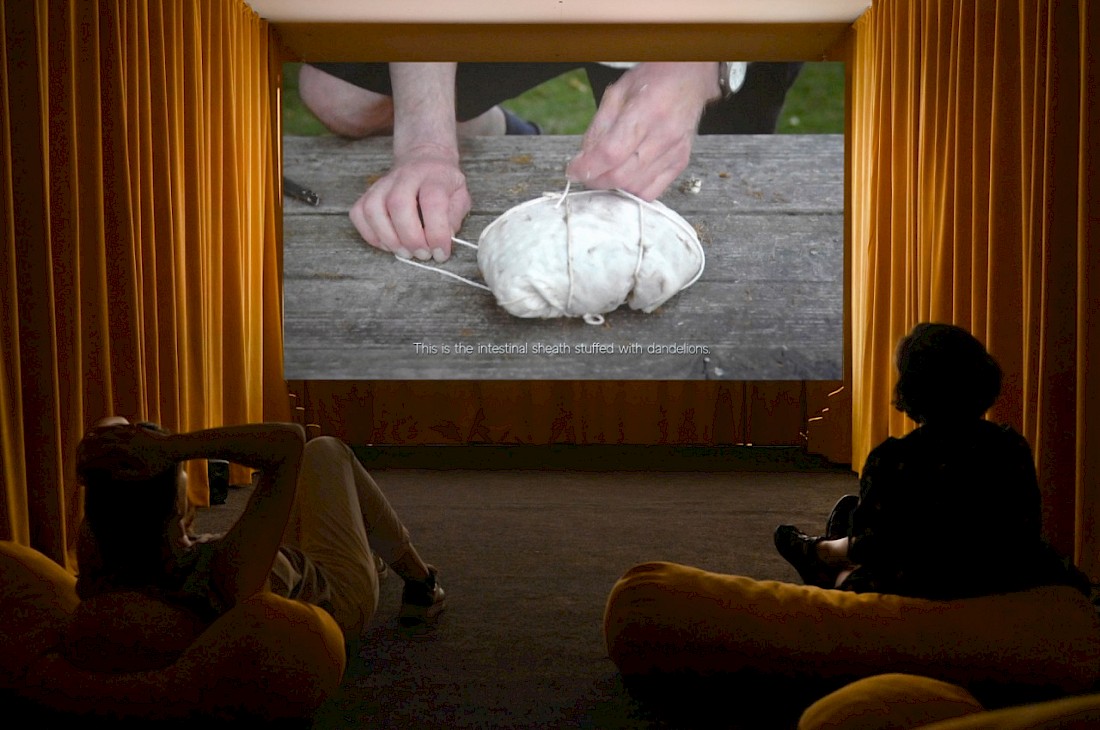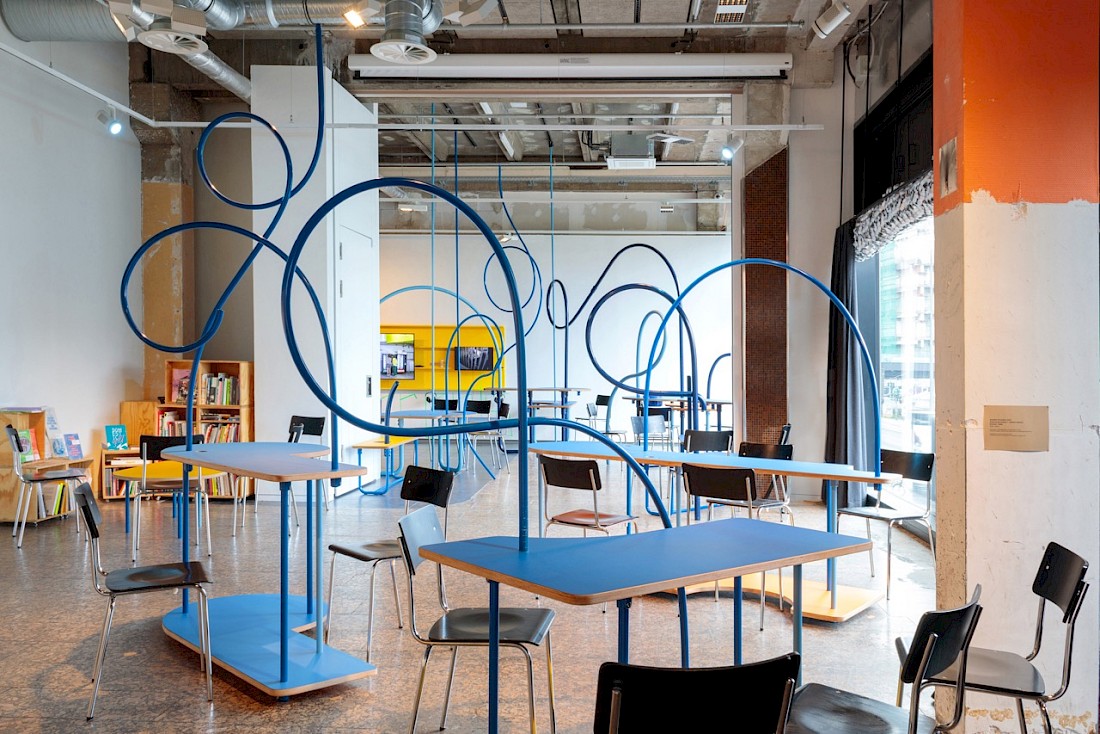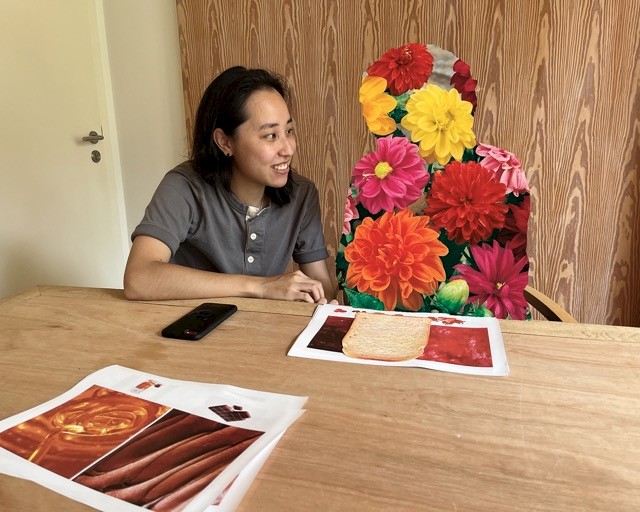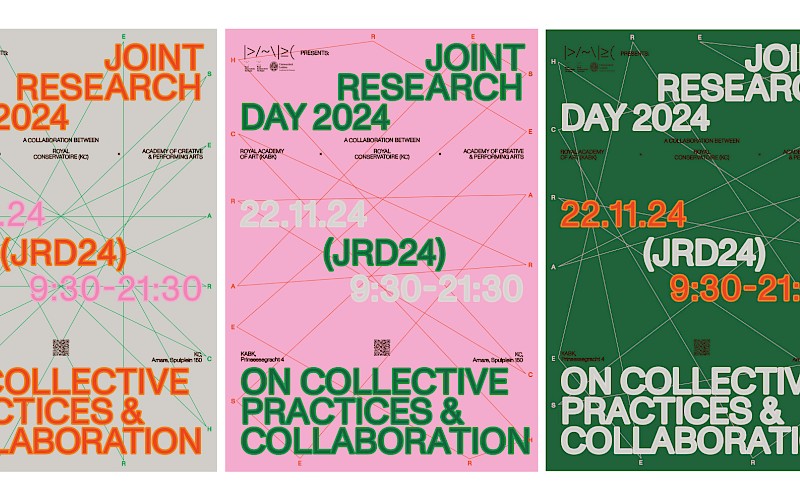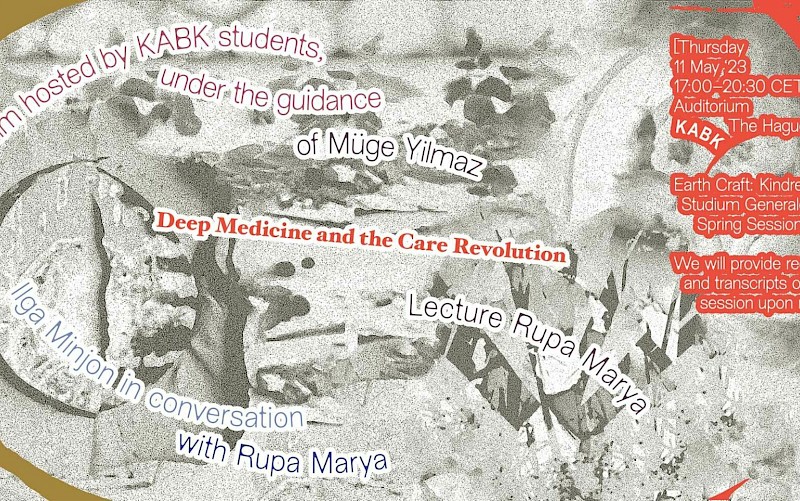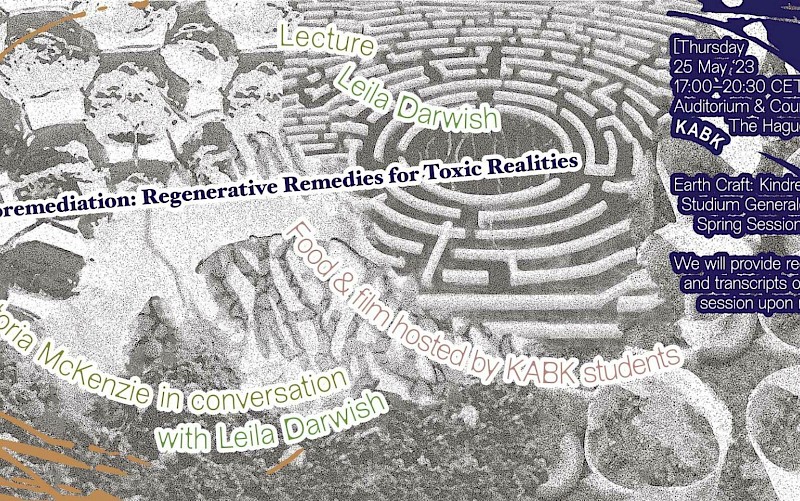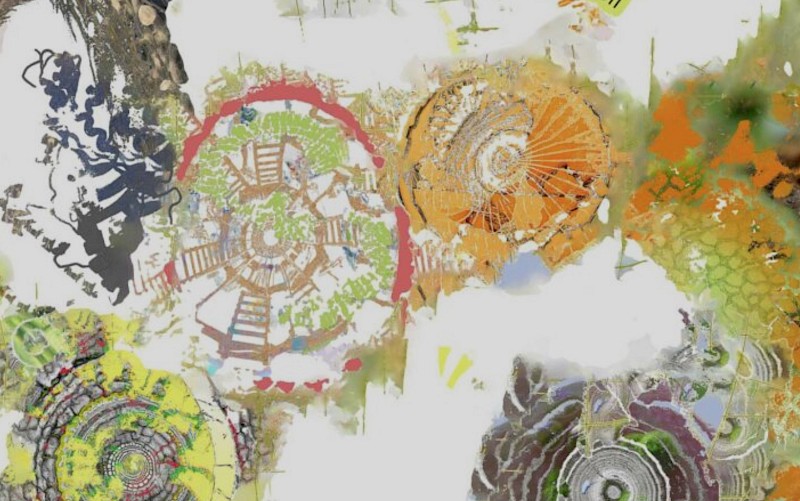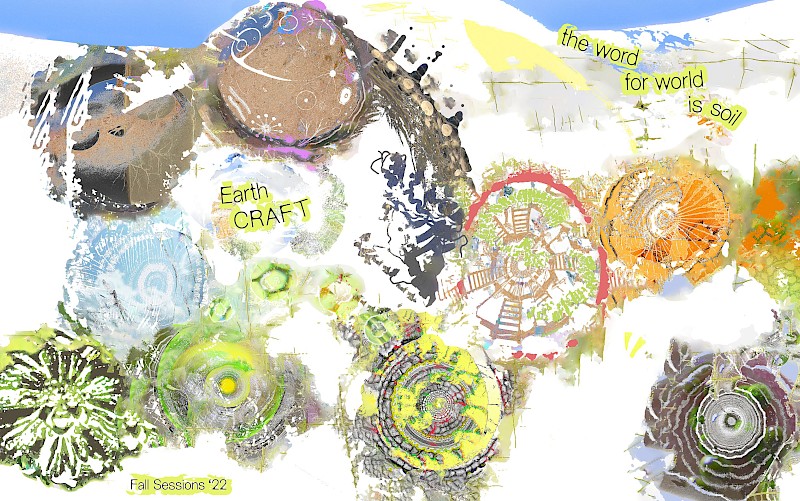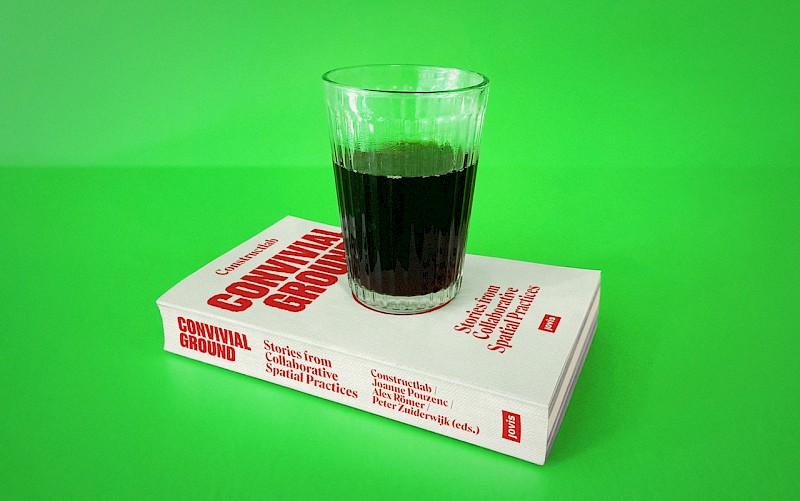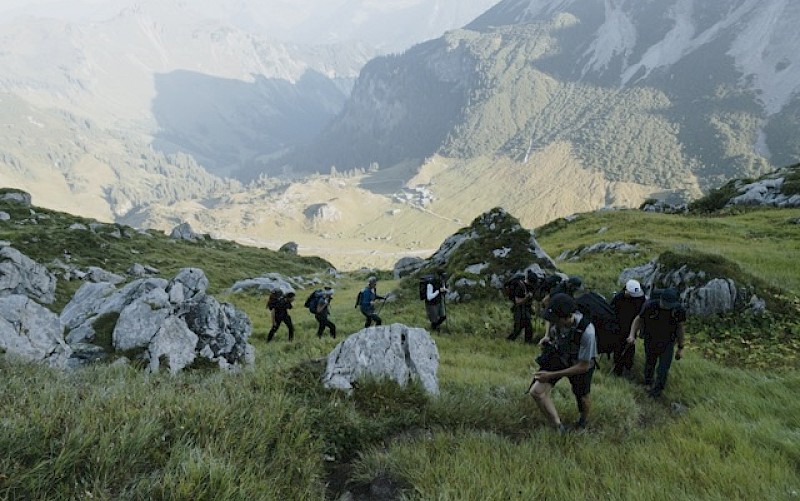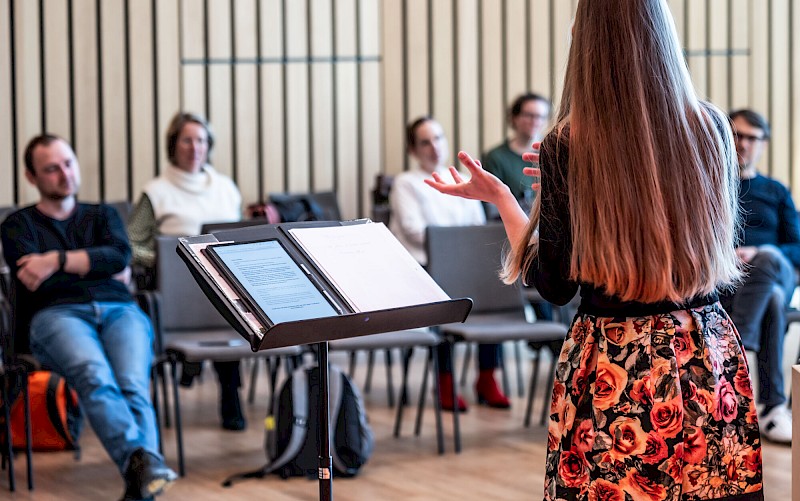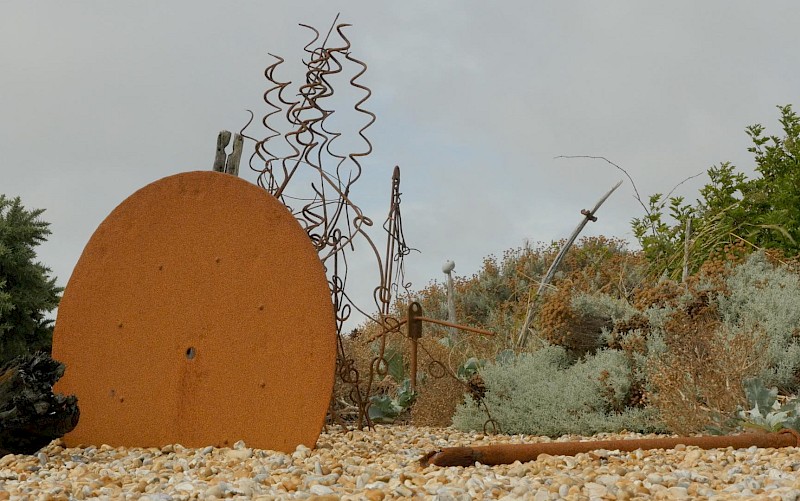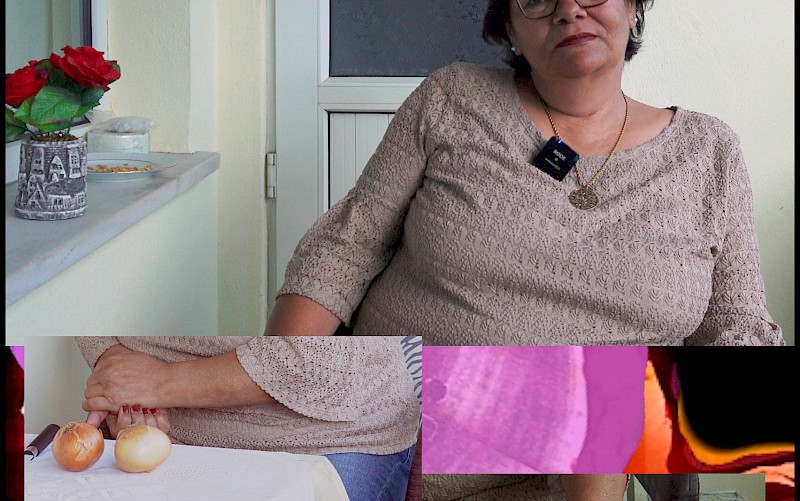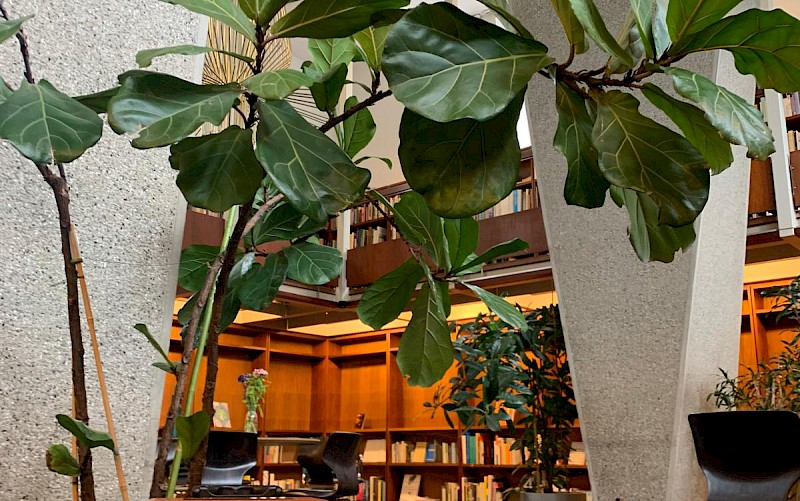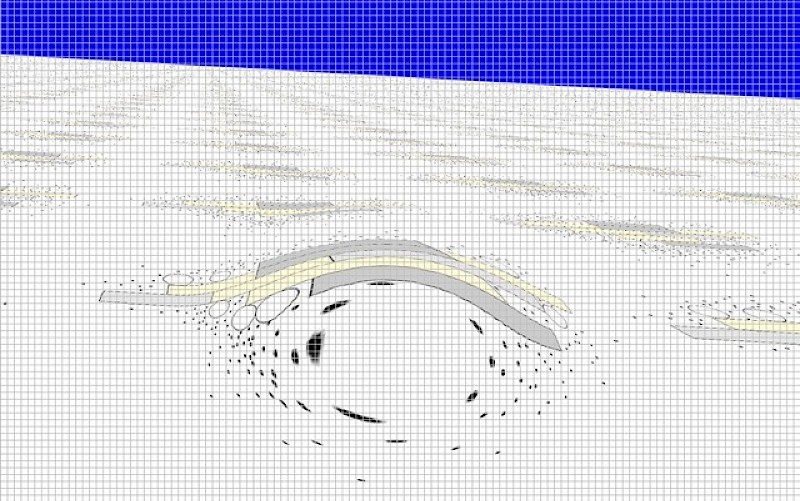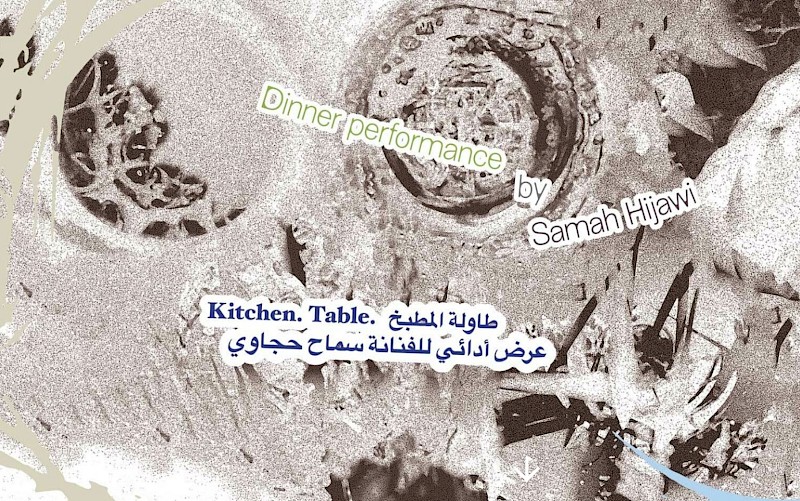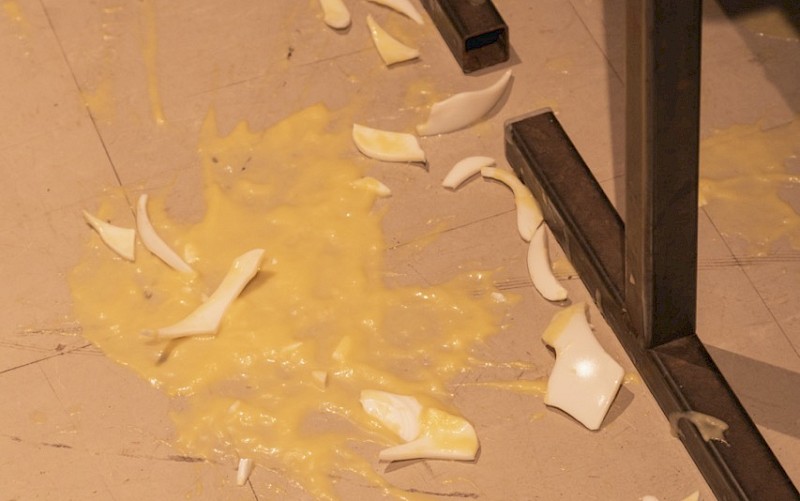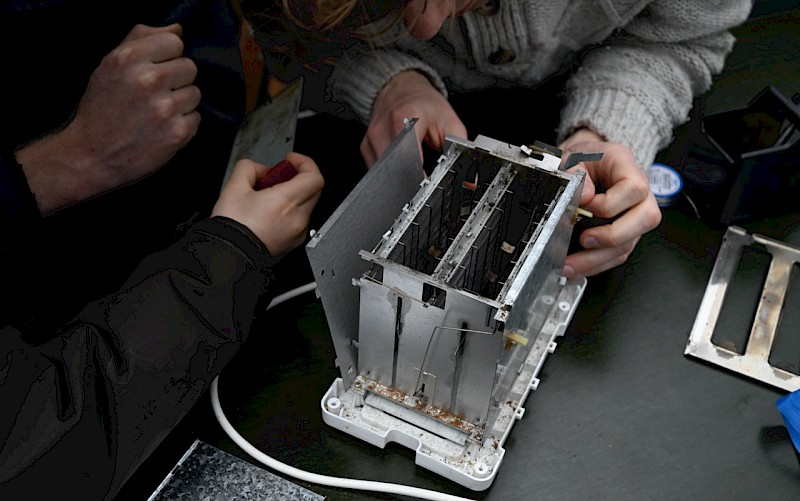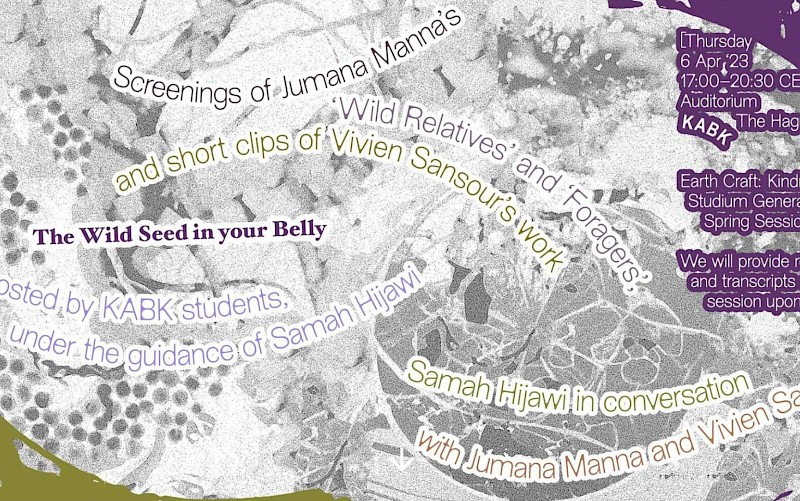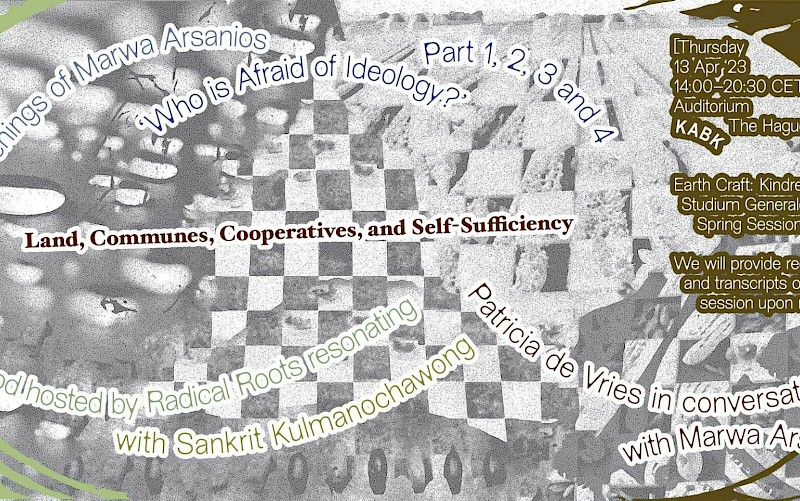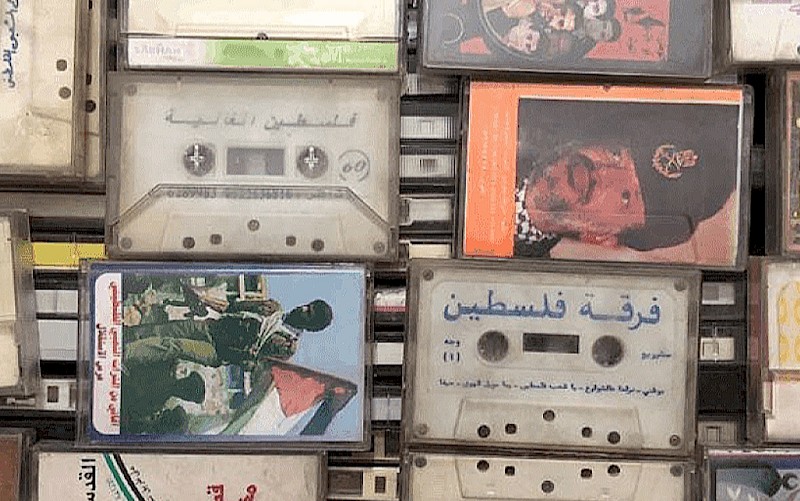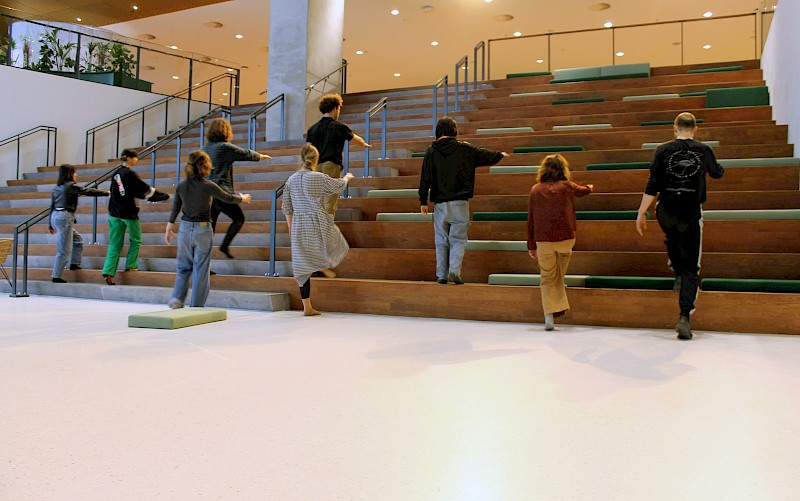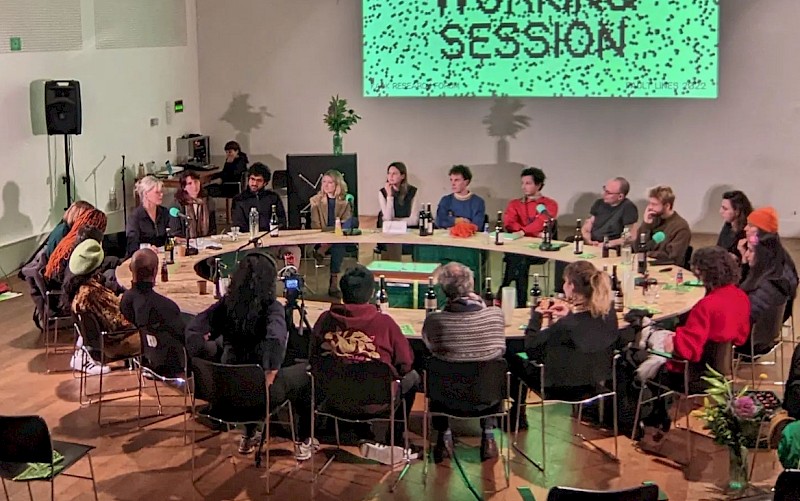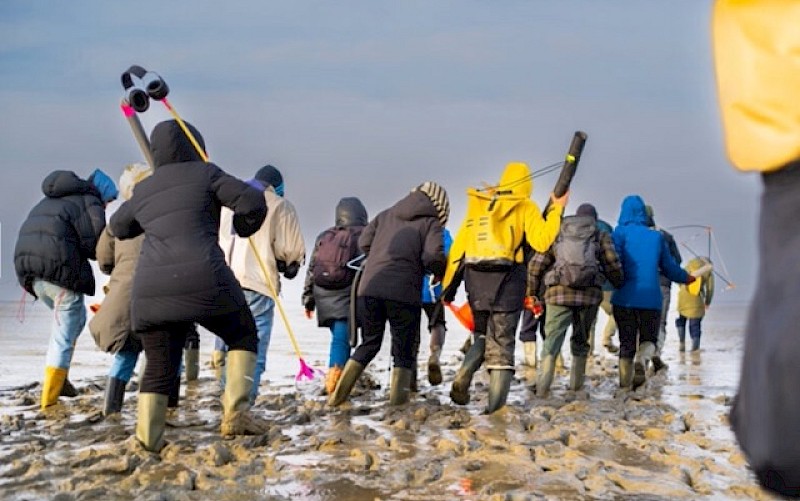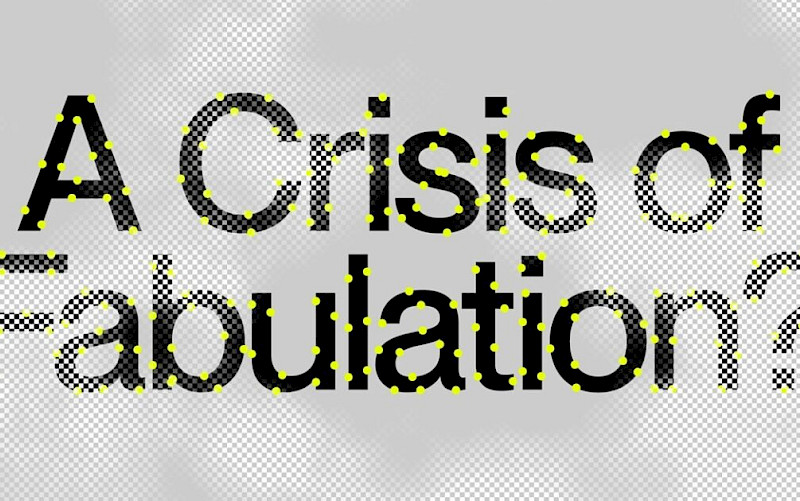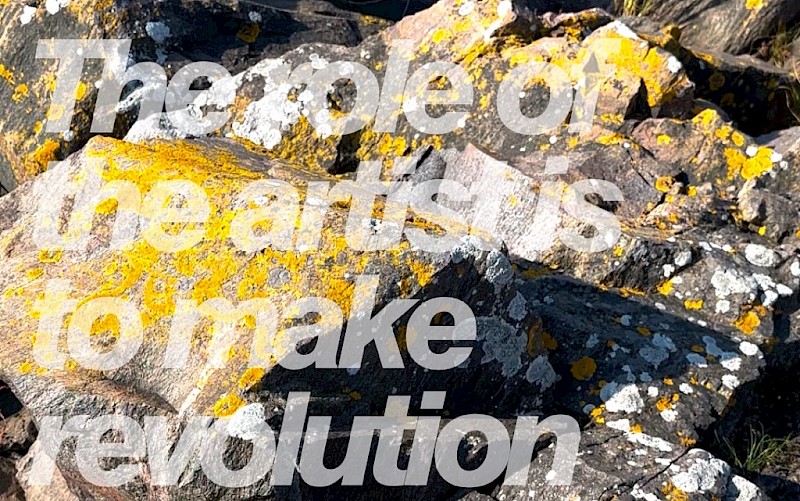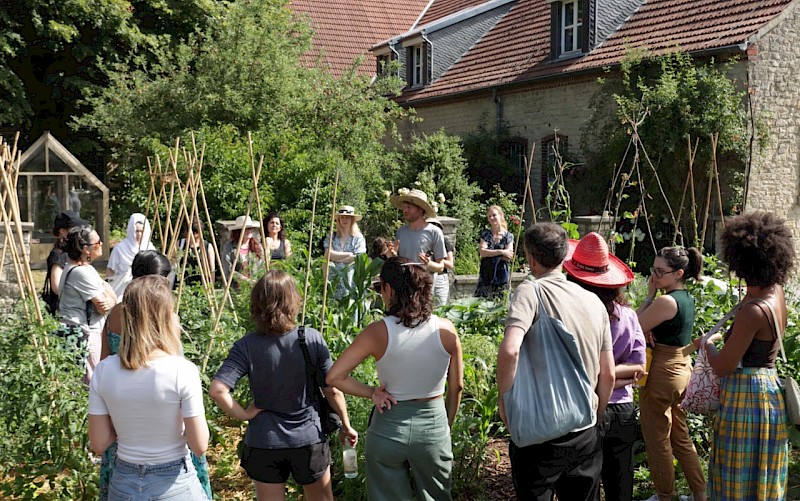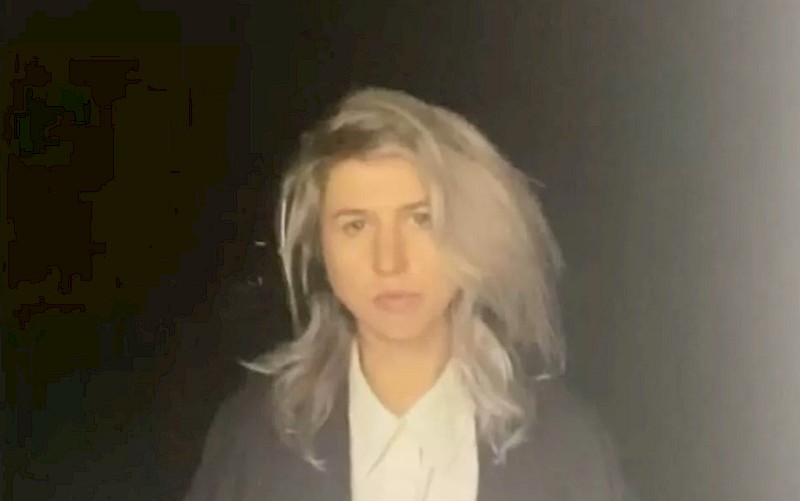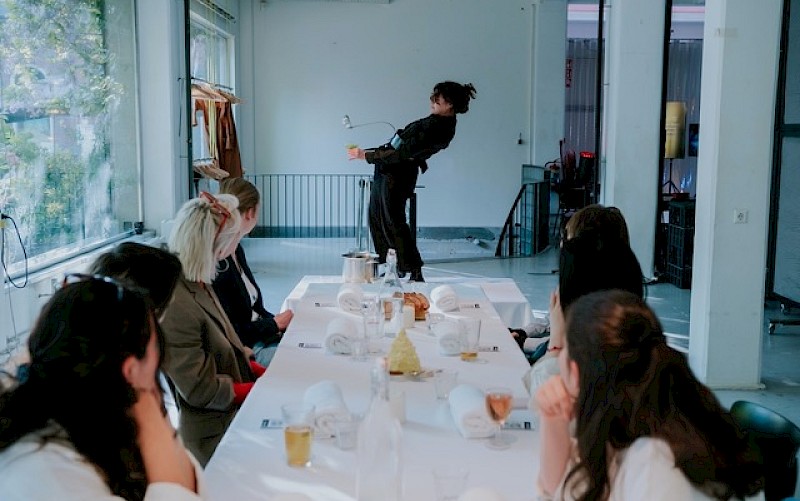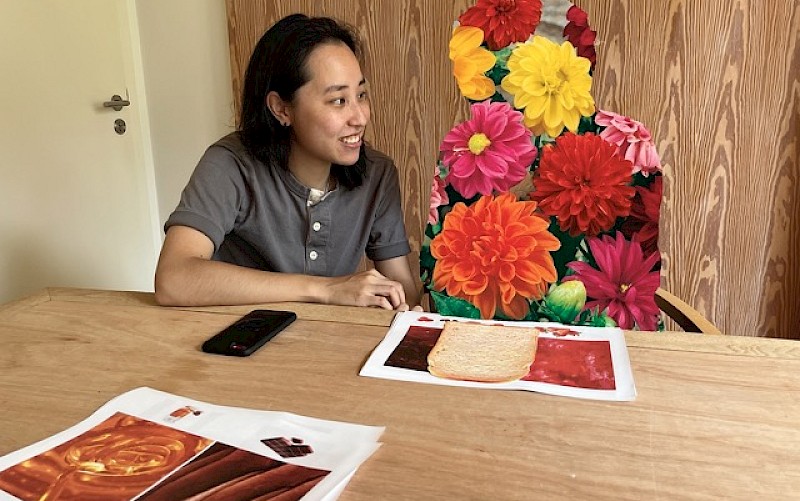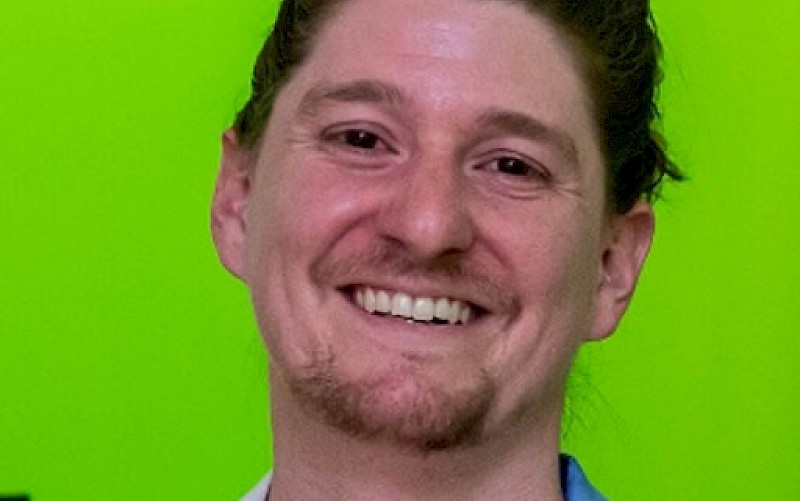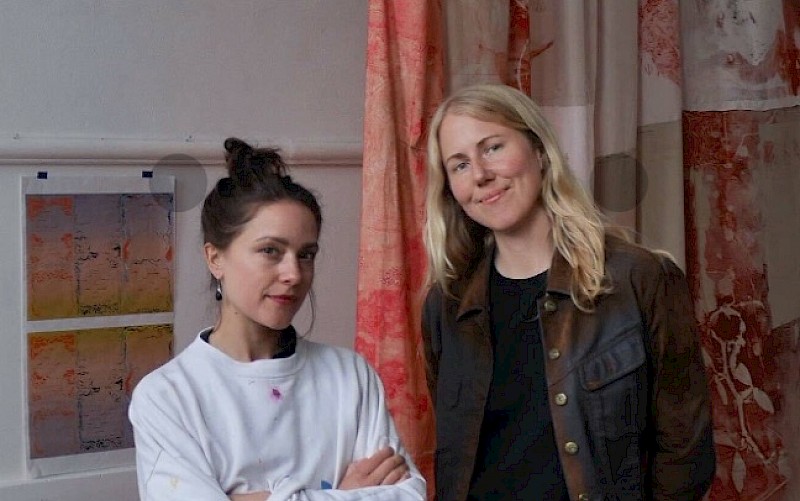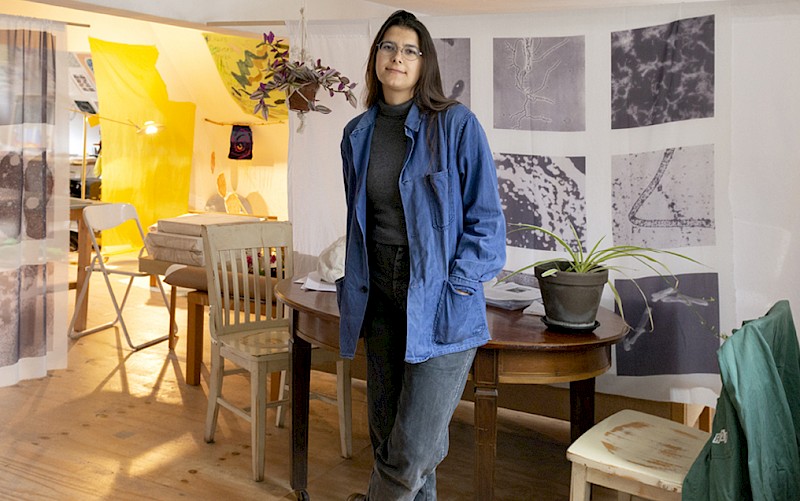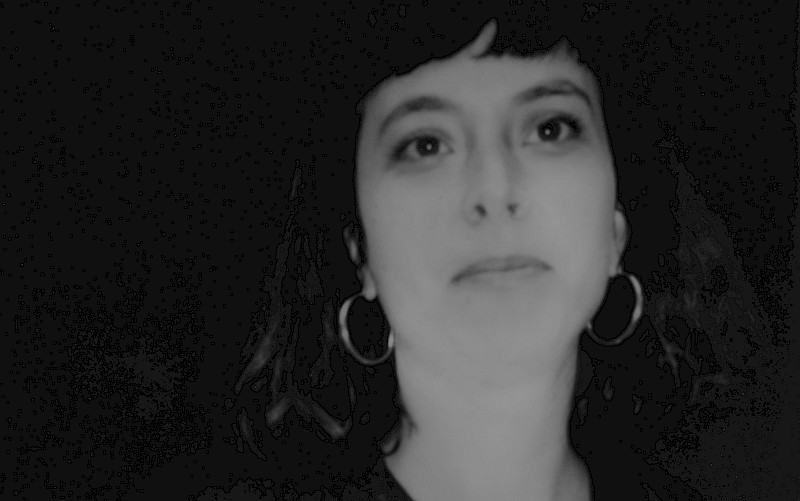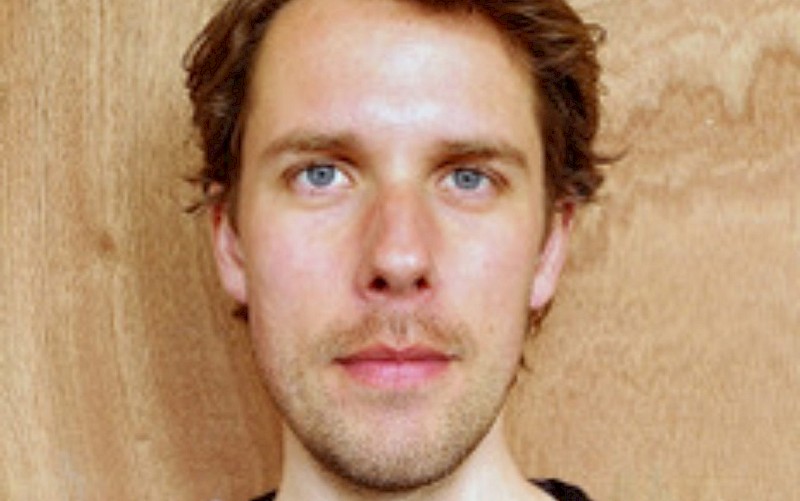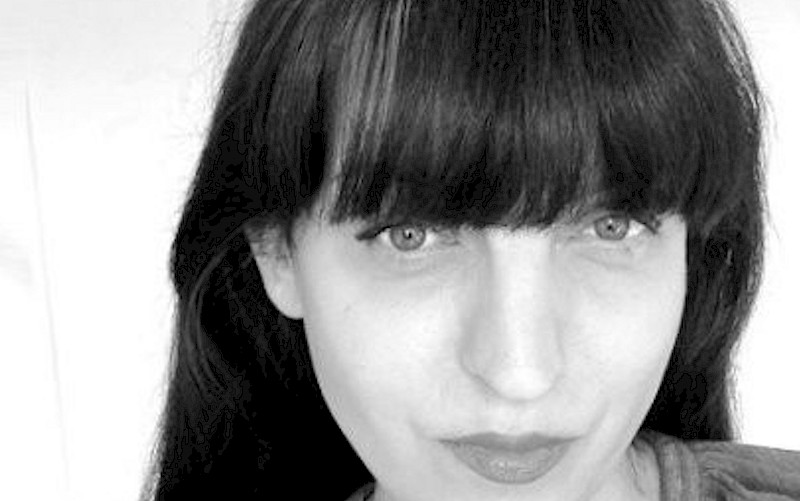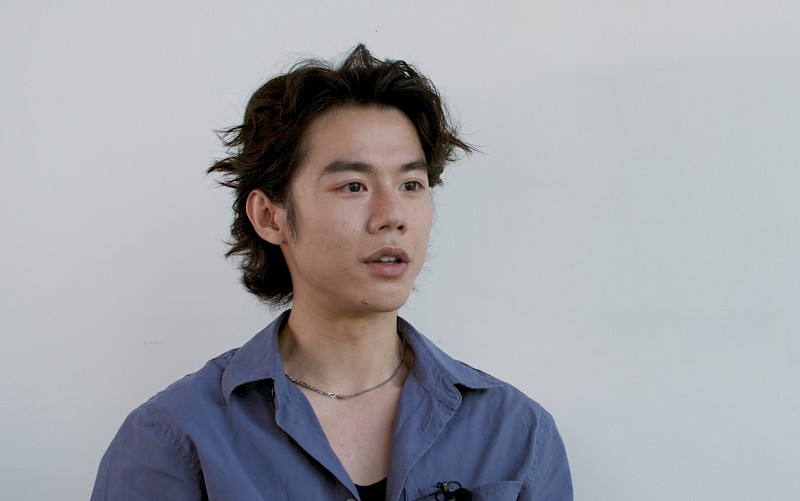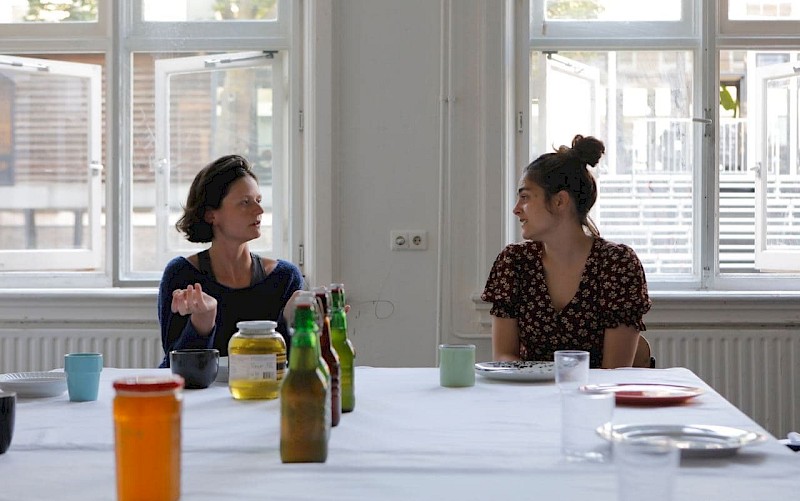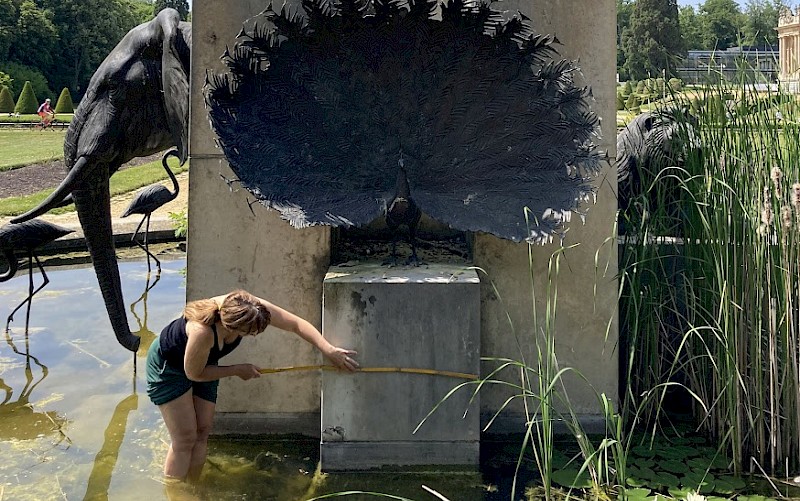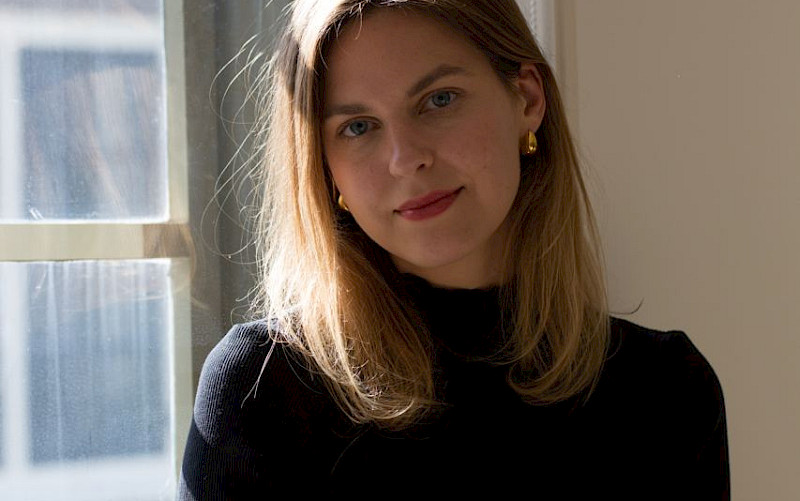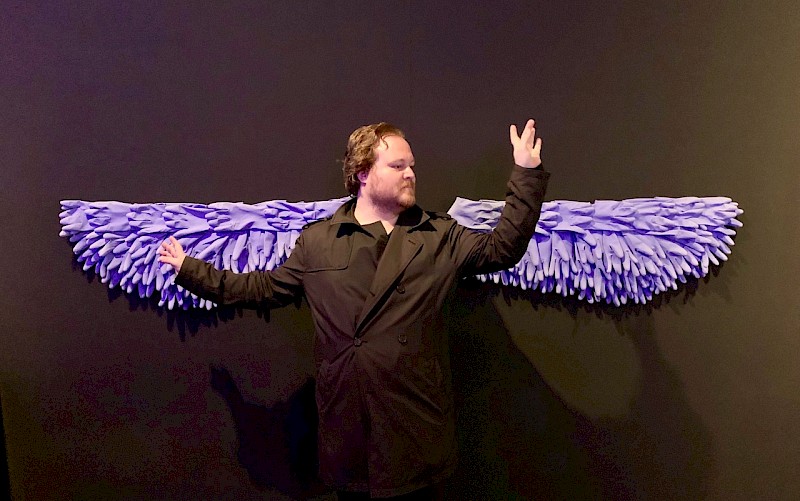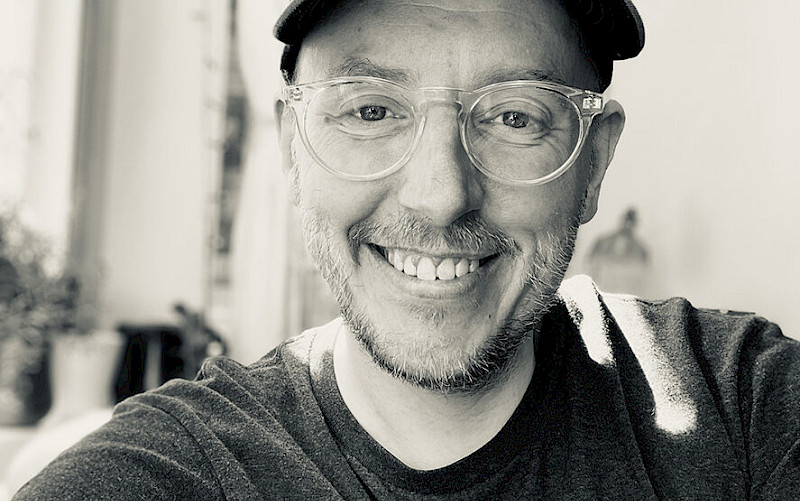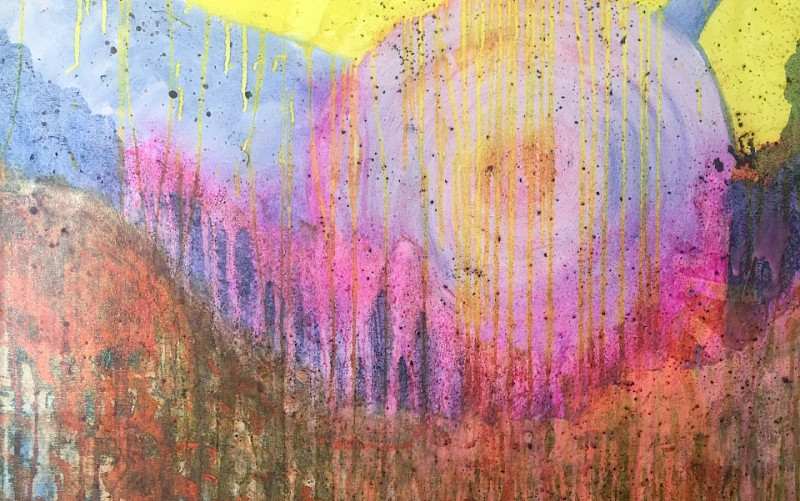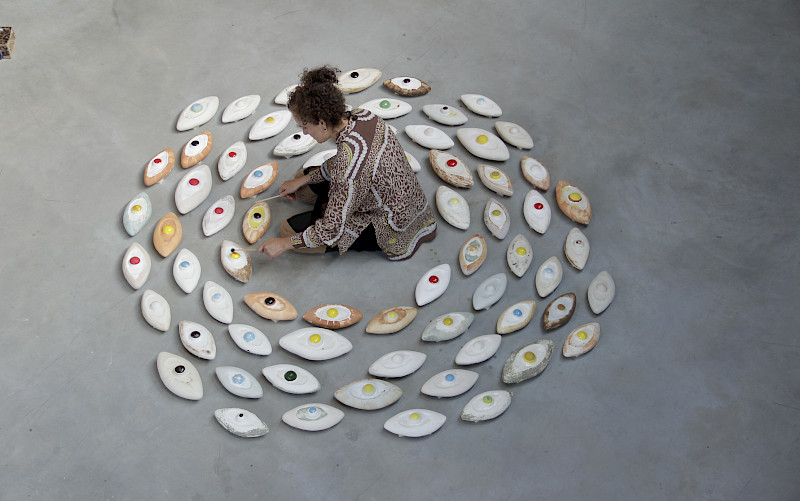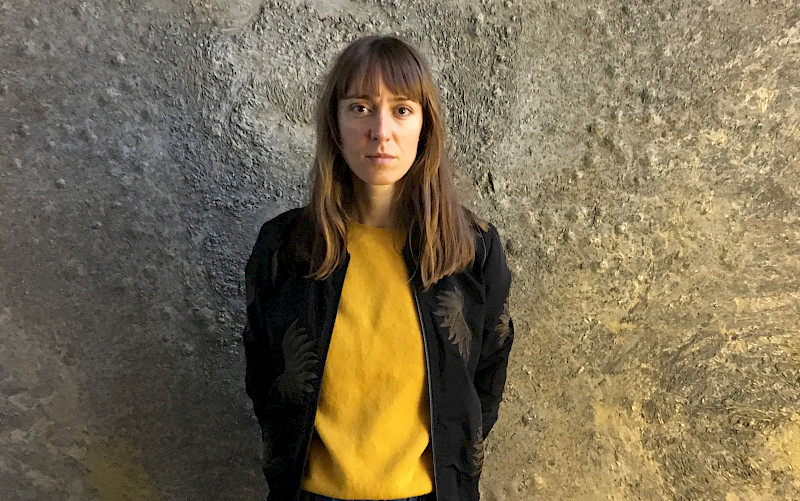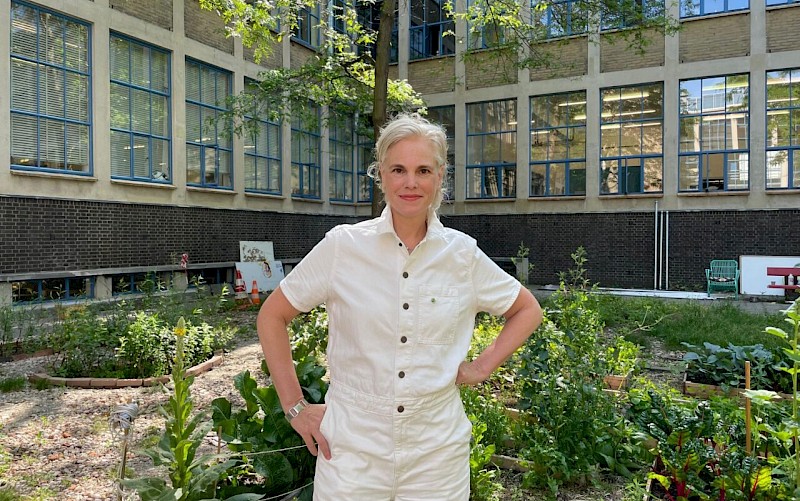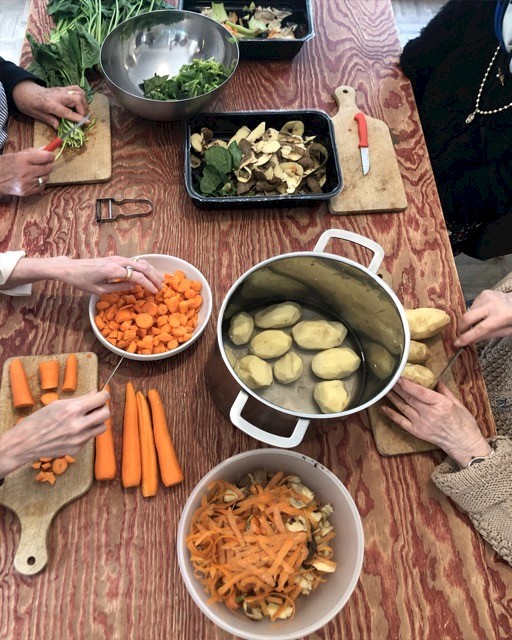
Roundtable #1 The Role of Food in Caring for Communities
In the first roundtable of the JRD24, we have invited artist-researchers for whom food is one of the central theme in their research and art practice. They are the key creative agents who help us to observe the bigger picture beyond the mere biological function of food.
Through their work, they take a different approach to food, one that truly acknowledges the daily habits and customs of eating and the way in which we perceive nutrition as a complex social and political structure. They all use participatory and community-centred approaches to explore the role of food in our society and to build community and trust.
How do they use food in their research or as a research tool in their practice? What are the strategies to use food as a mediator or glue to build community? What are the challenges and joys in this process? How do they build trust through food?
After a short introduction by moderator Ola Lanko, each participant of the roundtable introduces their practice and research between 5 - 8 minutes, followed by the roundtable. Please be welcome to join them at the famous table at the Gipsenzaal.
With /
Ola Lanko (moderator)
Ola Lanko (moderator)
Another Provision
Another Provision is the collaborative practice of researcher Dr. Hanna Baumann and artist Johann Arens. They apply strategies of public art to highlight the need for societal change, imagine concrete alternative models at the urban level and de-stigmatise public services. The collaboration is driven by the necessity to advocate for food justice, including social and sustainable production chains through the means of research, art and culture. Another Provision is invested in discussing and promoting alternate structural solutions across urban divisions of class and ethnicity.
The presentation will describe Another Provision’s art and research project envisioning alternative infrastructures and food systems in the context of food poverty and the cost of living crisis. The 3-year process involving people who have received food aid as well as food activists was co-produced with the National Food Service - London (NFSL), a mutual aid group trialing new models for more just food futures. Modelling their creative research on NFSL’s careful engagement to build communal structures based on a ‘solidarity not charity’ model of mutual care, Another Provision devised a care-based process of infrastructural co- design and creative visioning for more just urban food futures.
Throughout 2022 and 2023 they organised a series of 10 workshop events touring different community spaces around the UK and the project was implemented this summer in the new context of the nGbK in Berlin in their new location on Alexanderplatz, the former spaces of a MacDonalds restaurant. This event programme and exhibition called ‘Municipal Kitchens’ ran for 7 weeks, accompanied with community meals and workshops connecting local food justice organisations, artists, activists and neighbours.
Another Provision
Another Provision is the collaborative practice of researcher Dr. Hanna Baumann and artist Johann Arens. They apply strategies of public art to highlight the need for societal change, imagine concrete alternative models at the urban level and de-stigmatise public services. The collaboration is driven by the necessity to advocate for food justice, including social and sustainable production chains through the means of research, art and culture. Another Provision is invested in discussing and promoting alternate structural solutions across urban divisions of class and ethnicity.
The presentation will describe Another Provision’s art and research project envisioning alternative infrastructures and food systems in the context of food poverty and the cost of living crisis. The 3-year process involving people who have received food aid as well as food activists was co-produced with the National Food Service - London (NFSL), a mutual aid group trialing new models for more just food futures. Modelling their creative research on NFSL’s careful engagement to build communal structures based on a ‘solidarity not charity’ model of mutual care, Another Provision devised a care-based process of infrastructural co- design and creative visioning for more just urban food futures.
Throughout 2022 and 2023 they organised a series of 10 workshop events touring different community spaces around the UK and the project was implemented this summer in the new context of the nGbK in Berlin in their new location on Alexanderplatz, the former spaces of a MacDonalds restaurant. This event programme and exhibition called ‘Municipal Kitchens’ ran for 7 weeks, accompanied with community meals and workshops connecting local food justice organisations, artists, activists and neighbours.
Yoeri Guépin
Yoeri Guépin is an artist, researcher, and gardener based in the Netherlands. Through films, workshops, lectures, communal gardening projects, and field trips, his practice responds to injustice and systems of marginalization. His current work engages with the repercussions of industrialization on farmers and their ecosystems through the lens of his own embodied experience of being raised in several organic-farming communities.
He's a current resident at the Jan van Eyck Academy in Maastricht.
Yoeri Guépin
Yoeri Guépin is an artist, researcher, and gardener based in the Netherlands. Through films, workshops, lectures, communal gardening projects, and field trips, his practice responds to injustice and systems of marginalization. His current work engages with the repercussions of industrialization on farmers and their ecosystems through the lens of his own embodied experience of being raised in several organic-farming communities.
He's a current resident at the Jan van Eyck Academy in Maastricht.
Rising Lai
The research of Rising Lai, associated with the HOMEDEM doctoral network, focuses on understanding decision-making among people with dementia in the context of meal choices. The study aims to explore creative methods of engagement and expression for people with dementia, with the goal of contributing to the broader discussion on person-centred care. The core of the research is the concept of collective practices and collaboration, particularly within the realm of participatory design in dementia care. Through interactive methods such as group discussions, photos, collages, tastings, and interviews, Rising Lai is investigating how collaborative efforts can support the autonomy of people with dementia in their daily lives and how these strategies can be applied to practical home care situations.
Rising Lai
The research of Rising Lai, associated with the HOMEDEM doctoral network, focuses on understanding decision-making among people with dementia in the context of meal choices. The study aims to explore creative methods of engagement and expression for people with dementia, with the goal of contributing to the broader discussion on person-centred care. The core of the research is the concept of collective practices and collaboration, particularly within the realm of participatory design in dementia care. Through interactive methods such as group discussions, photos, collages, tastings, and interviews, Rising Lai is investigating how collaborative efforts can support the autonomy of people with dementia in their daily lives and how these strategies can be applied to practical home care situations.
Fabas
As the artist duo Fabas, Alejandra López & Lena Longefay explore food making and sharing as an artistic practice. Together they make edible installations that rejoice in moments of coming together, and follow a desire to foster intimacy, joy and curiosity about the food we eat, the way it reaches us and the effect it has on our minds and bodies. Investigating the intertwined cultural, socio- political and ecological aspects of food by creating platforms for discussion and conversation, instigating playfulness and curiosity in food and its histories. Fabas are guided by slow cooking and fermentation techniques, both practically and metaphorically, and are deeply interested in the complex multispecies collaboration involved in food making.
Having previously translated mystic superstar Hildegard von Bingen´s notions on healing into a series of interactive installations, they are currently expanding our research into eco feminist histories and storytellings of food and daily life.They would like to share their process based research and how their individual and collaborative practices merge and inform each other.
Fabas
As the artist duo Fabas, Alejandra López & Lena Longefay explore food making and sharing as an artistic practice. Together they make edible installations that rejoice in moments of coming together, and follow a desire to foster intimacy, joy and curiosity about the food we eat, the way it reaches us and the effect it has on our minds and bodies. Investigating the intertwined cultural, socio- political and ecological aspects of food by creating platforms for discussion and conversation, instigating playfulness and curiosity in food and its histories. Fabas are guided by slow cooking and fermentation techniques, both practically and metaphorically, and are deeply interested in the complex multispecies collaboration involved in food making.
Having previously translated mystic superstar Hildegard von Bingen´s notions on healing into a series of interactive installations, they are currently expanding our research into eco feminist histories and storytellings of food and daily life.They would like to share their process based research and how their individual and collaborative practices merge and inform each other.
KABK Green Office (ginkgo)
The KABK Green Office (ginkgo) promotes both responsible ways of artmaking & living, as well as a culture of sharing and communality. One of the ways in which they do this is through the activities happening in the garden, not only related to growing food but also to experiencing the garden as a place to foster hands-on learning, regenerative practices, and cross-disciplinary collaboration, what they call ‘the classroom for the living’.
KABK Green Office (ginkgo)
The KABK Green Office (ginkgo) promotes both responsible ways of artmaking & living, as well as a culture of sharing and communality. One of the ways in which they do this is through the activities happening in the garden, not only related to growing food but also to experiencing the garden as a place to foster hands-on learning, regenerative practices, and cross-disciplinary collaboration, what they call ‘the classroom for the living’.
